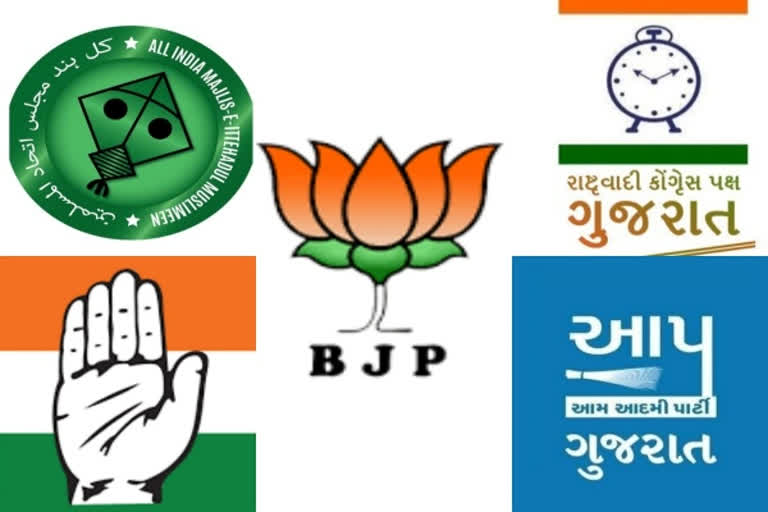Ahmedabad: When Gujarat is looking forward to the election results on February 23, speculations and calculations have become the order of the day. According to political analysts, two out of six municipal corporations – Rajkot and Surat – are likely to throw up surprising results, a big setback for the ruling BJP in Rajkot and Surat. However, political observers believe that BJP may scrape through with a paper-thin majority to claim the upper hand in the other four Municipal Corporations. It is also observed that many conventional party strongholds will be dented through cross-voting.
The growing influence of the Aam Aadmi Party among the immigrant labour population in the diamond city of Surat is considered a reason for the possible upset of BJP. Also, people's aversion towards political campaigning rooted in political issues of Nationalism and Hindutva, which had been the core of the political campaign for the party, dismissing the focus on local civic issues also would be working against the interest of the party among its neutral voters, it is observed.
Lower voter turnout is another major topic of discussion among all political parties. Every party is hoping that a lower voter percentage is going to work in their favour.
In Gujarat, urban voters seem to be less interested to come out and vote during Municipal Corporation elections. The voting percentage this time has come down to 45.64 percent from the 46.50 percentage in 2015. An innate apathy of the affluent class towards local politics and issues is what is impacting the voting percentage. In the 2010 elections, the voting percentage was even lower at 44.12 per cent.
When the lack of interest among the rich and powerful upper class in Gujarat is generally believed to be the reason for lower voter turnout, there are other political reasons also cited for disinterest among voters to exercise their franchise.
Has BJP's Three Rules resulted in lower voter interest?
BJP came up with three rules while allocating party tickets to contest the local body elections. Party denied tickets to those above 60 years of age, to those who have already contested three times in the past and to the kith and kin of party leaders. Party's attempts to field newer faces seemed to have backfired as the party senior leaders became inactive in poll campaigns. It is observed that the party's decision angered many in the party who refused to encourage supporters to go to the polling booths and to vote for the party.
